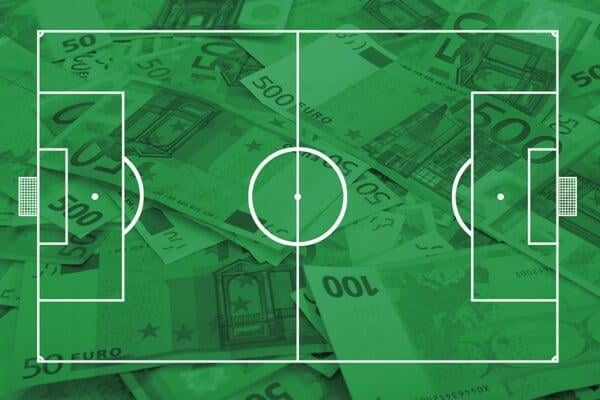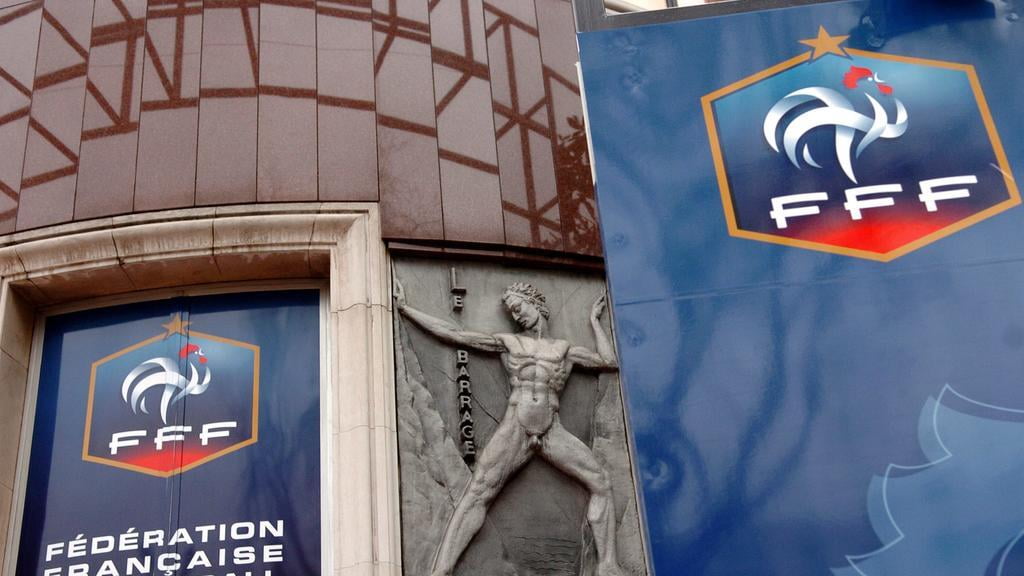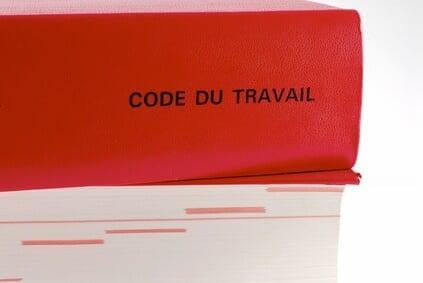By a April 22, 2021 press release, FC Girondins de Bordeaux announced the departure of its shareholder, King Street. These circumstances led the club to initiate before the Commercial Court of Bordeaux a procedure for amicable settlement of the difficulties with the appointment of an ad hoc representative. This procedure could lead to the opening of bankruptcy proceedings.
This is the opportunity to recall what the sporting consequences can be, and in particular a demotion, in the event that a football club is the subject of a reorganization or liquidation procedure.
The demotion of the Football Club in the lower division
In the event of judicial reorganization proceedings, Article 103 of the Administrative Regulations of the Professional Football League (LFP) states that:
"The club which is the subject of a reorganization proceedings is, at the end of the season, demoted to the next lower division to the one for which he would have been sportingly qualified the following season."
However, it must be specified that this article is the subject for the season 2020/2021 special arrangements. Indeed, l'article 103a of the Administrative Regulations of the LFP provides:
" Article 103. BIS - SPECIFIC JUDICIAL PROCEDURE FOR THE 2020/2021 SEASON
- Article 103 is suspended for the 202012021 season.
- A Ligue 1 or Ligue 2 club that would be subject to judicial reorganization proceedings opened before the last match of the 2020/2021 season will automatically be subject to a withdrawal of 15 points for its classification for the 2028/2021 season. .
- A Ligue 1 or Ligue 2 club which would be the subject of a safeguard or receivership procedure opened before the effective resumption of the 2021/2022 championship will not be demoted to the division immediately below that for which it would have been sportingly qualified the following season, subject to any decisions of the DNCG, and without prejudice to paragraph 5. below concerning the situation of a club during the observation period on the date of the effective resumption of the 2021/2022 championship.
- A Ligue 1 or Ligue 2 club which would benefit from a safeguard plan or a transfer plan approved by the court prior to the effective resumption of the 2021/2022 championship will be admitted to participate in the championship in the division in which it is will have been sportingly qualified, subject to any decisions of the DNCG.
- A Ligue 1 or Ligue 2 club which is in an observation period as part of a safeguard or receivership procedure on the date of the effective resumption of the 2021/2022 championship, may not take part in any organized championship. by the LFP.
- In the case of a disposal plan approved by the commercial court during the 2020/2021 Ligue 2 or Ligue XNUMX championship, the acquiring company will benefit, from its date of entry into use, from immediate continuity. the national sporting and financial rights of the club whose assets it has taken over, instead of the former club, on the sine qua non condition that it undertakes to take over all of the liabilities [with the exception of the liabilities with regard to the shareholders], and that the takeover project has received the prior favorable opinion of the DNCG.
Failure to meet the condition of continuity above, the acquiring company will not be able to continue the current championship and will start the following season in a lower division [resulting automatically from the 20th ranking of the club whose assets it has taken over], and under reserve for any decisions of the DNCG. The DNCG will be responsible for monitoring, where applicable, the settlement of liabilities by the acquiring company.- The resolutions taken by the General Assembly of the LFP and the Board of Directors prior to the date of the takeover are legally enforceable against the acquiring company, in particular the provisions concerning the terms and conditions of reimbursement of the EMP subscribed by the LFP, as well as than the cash advance to the clubs made by the LFP on November 2, 2020."
Otherwise, article 234 of the General Regulations of the FFF states that:
- "When a club is the subject of a safeguard or receivership procedure, it is carried out at least, to its demotion to the next lower division to that for which he would have been sportingly qualified.
- When this demotion has the effect of relegating a club with professional status to a National 1, National 2 or National 3 Championship, it automatically results in the withdrawal of the authorization to use professional players.
When this demotion has the consequence of relegating a club to the championships organized by a regional league, the latter has full competence to determine the conditions under which this club will be authorized to continue its activities.- When one of the legal entities of a club, referred to in article 2 of the FFF Statutes, is the subject of a judgment of judicial liquidation, the latter automatically causes the forfeiture of club sports rights.
THowever, the Executive Committee may, on an exceptional basis, decide on a new allocation of all or part of these sports rights. "
It should be noted that in the event of bankruptcy, a sports federation cannot exclude a club from the championship during the season if there are still prospects for recovery (CAA Versailles, 5 Feb. 2009, Entente Sannois Saint-Gratien v / French Football Federation and Professional Football League, n ° 07VE01769).
The measure of exclusion from a championship during the season is indeed the one that is most likely to undermine the smooth running and fairness of the competitions (Council of State, July 19, 2010, Entente Sannois Saint-Gratien v / French Football Federation and Professional Football League, n ° 325892).
The role of the DNCG
The opening of collective proceedings
When the company encounters financial difficulties, it can initiate before the Commercial Court a preventive and confidential procedure for amicable resolution of difficulties. The aim is to restore the situation of the company before the cessation of payments with the help of an ad hoc representative appointed by the president of the tribunal.
If the debtor justifies difficulties which he is not able to overcome but without being in suspension of payments, a safeguard procedure can be opened against him under the Articles L. 620-1 and s. of the Commercial Code. This procedure is intended to facilitate the reorganization of the company in order to allow the continuation of economic activity, the maintenance of employment and the discharge of liabilities. It gives rise to a plan adopted at the end of an observation period.
The debtor may be in default. Cessation of payments is the impossibility for a debtor to meet its current liabilities with its available assets. This is the cause of opening of the judicial reorganization procedure or of the judicial liquidation which will be pronounced by a judge in accordance with the provisions of the Commercial Code.
- upon declaration of the debtor (“the bankruptcy filing”),
- on summons from a creditor,
- ex officio by the judge,
- at the request of the public prosecutor.
What about the consequences of the opening of collective proceedings on a player's employment contract?
The opening of collective proceedings does not in itself result in the termination of employment contracts concluded between the club and its employees. TheArticle L. 1243-1 of the Labor Code, which is of public order and applicable to salaried professional sportsmen, provides that:
"Unless the parties agree, the fixed-term employment contract can only be terminated before the end of the term in the event of serious misconduct, force majeure or incapacity noted by the occupational physician. "
Consequently, contracts continue "normally" during the so-called observation period. In addition, putting a club in receivership does not constitute a case of force majeure justifying the termination of the employment contracts of its players (Cass. soc., May 6, 1998, n ° 96-40.867), as well as judicial liquidation (Cass. soc., 20 Oct. 1993, n ° 91-43.922).
Thus, the early termination of an employment contract by a club must be declared abusive, in the absence of serious misconduct on the part of the athlete. It is also irrelevant whether or not the club lost its professional club status and on what date (Colmar Court of Appeal, November 10, 2016, n ° 4 A 15/00810).
Note that in the event of safeguarding, reorganization or judicial liquidation of a club, the law guarantees the payment of all "sums due to employees on the date of the judgment opening any procedure for reorganization or judicial liquidation "(Labor C., art. L. 3253-8), within the limit of a ceiling. The employee is therefore insured against the risk of non-payment of debts resulting from the employment contract (wages due, bonuses, indemnities). This insurance is called AGS (Association for the Management of the Employee Claims Insurance Scheme) which is financed by a compulsory employer contribution.









